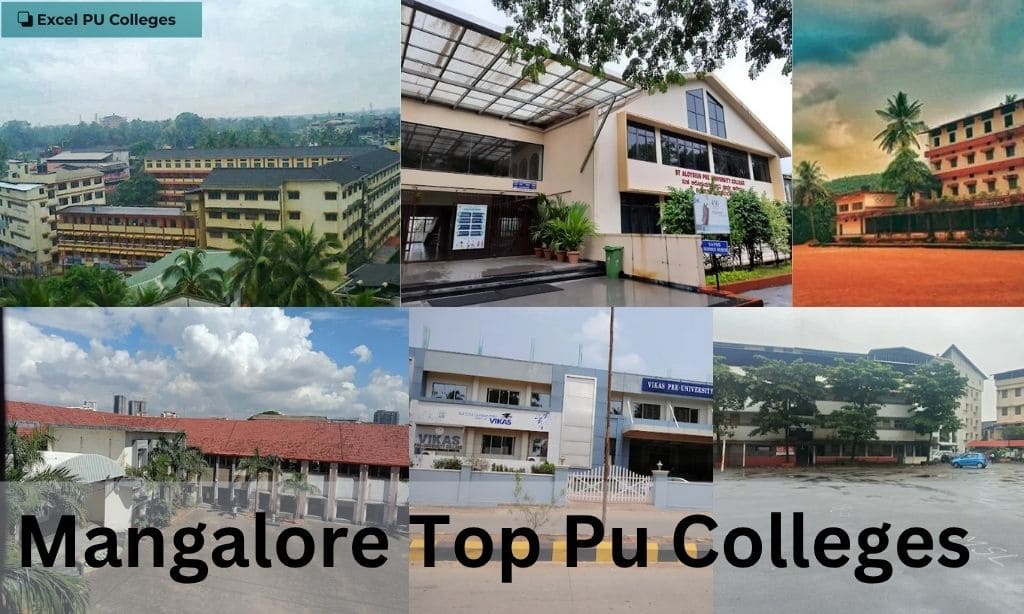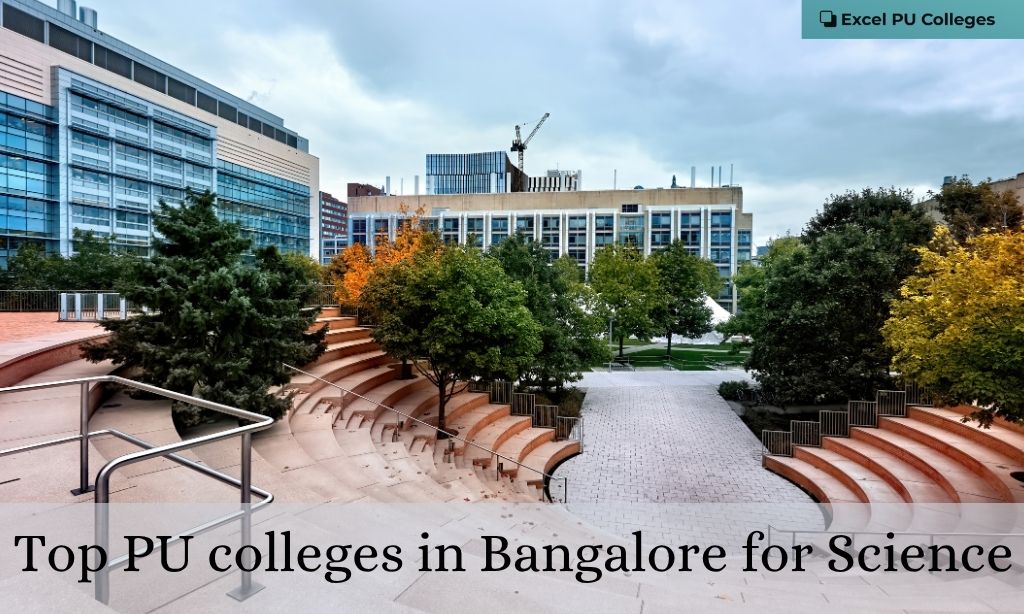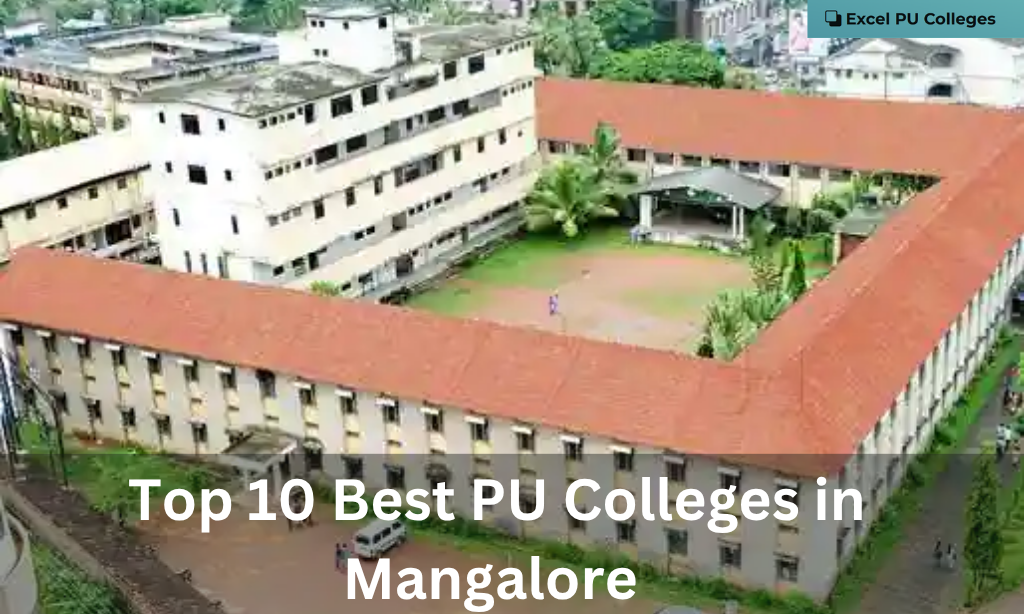The Pre-University (PU) college system in India acts as a bridge between high school and undergraduate education, typically covering two years of study. It is crucial for students who aspire to pursue professional courses in fields such as engineering, medicine, commerce, and humanities. PU colleges not only provide a strong academic foundation but also play a pivotal role in shaping a student's academic journey and career prospects, offering reassurance about their future.
In this article, we will delve into a detailed analysis of the PU college education system, its teaching methods, the role of competitive exams, the top 10 PU colleges, their facilities, and the benefits they offer. By highlighting the benefits of the PU education system, we aim to instill optimism about the opportunities it offers.
1. Overview of the PU Education System
PU education is primarily split into two streams:
Science: Focused on Physics, Chemistry, Biology, Mathematics, and Computer Science.
Commerce: Covers subjects like Accountancy, Business Studies, Economics, and Mathematics.
Humanities/Arts: Includes subjects like History, Political Science, Sociology, Geography, and Psychology.
Key Features:
- Two-year course duration: Students complete two years of education before transitioning to undergraduate studies.
- State Board/CBSE/ICSE: PU colleges may follow state board curricula, CBSE (Central Board of Secondary Education), or ICSE (Indian Certificate of Secondary Education).
- Subject combinations: Based on the student's career interests, they can choose combinations such as PCM (Physics, Chemistry, Mathematics) or PCB (Physics, Chemistry, Biology) in the science stream or combinations like Business Studies, Accountancy, and Economics in the commerce stream.
2. Teaching Methods in PU Colleges
Teaching in PU colleges primarily focuses on preparing students for competitive exams while ensuring that the students grasp essential concepts and practical applications. Some key teaching strategies include:
- Lecture-based teaching: Involves traditional classroom lectures with a focus on theoretical knowledge.
- Hands-on learning: Laboratory-based subjects like Chemistry, Biology, and Physics have practical sessions for deeper understanding.
- Personalised learning: Many top PU colleges now use customised learning approaches, such as mentoring systems, where students receive guidance and support based on their strengths and weaknesses.
- Digital learning: With technological advancements, PU colleges are increasingly adopting online platforms and teaching tools. This includes live classes, recorded sessions, and interactive resources for better engagement.
- Group discussions and seminars: Encouraging students to engage in debates and seminars allows them to develop critical thinking and communication skills.
3. Role of Competitive Exams in the PU System
PU education is not just about theoretical knowledge, but also about practical applications. It plays a significant role in preparing students for various national and state-level competitive exams, serving as gateways to professional courses and undergraduate programs. This practical approach is a key aspect of the PU system.
- JEE (Joint Entrance Examination): For admission to engineering colleges.
- NEET (National Eligibility cum Entrance Test): For medical college admissions.
- CET (Common Entrance Test): For state-level college admissions in Karnataka and several other states.
- CPT (Common Proficiency Test): For those aiming for a career in Chartered Accountancy.
PU colleges conduct coaching classes for these exams as part of their curriculum, ensuring students are well-prepared. Mock tests, timed practice sessions, and doubt-solving classes are common ways to help students succeed in these exams.
4. Top 10 PU Colleges: Features, Facilities, and Benefits
Here, we highlight some of the best PU colleges in India, focusing on their unique offerings.
1. EXCEL PU College, Guruvayanakere, Mangalore
- Facilities: Modern classrooms, state-of-the-art laboratories, a library with digital resources, sports facilities, and hostels.
- USP: Strong focus on holistic development, personality development, and academic excellence.
- Benefits: High success rate in competitive exams, especially in NEET and JEE.
2. Sri Chaitanya PU College, Hyderabad
- Facilities: Well-equipped science labs, computer labs, spacious classrooms, and a dedicated career counselling unit.
- USP: Focus on extensive coaching for competitive exams and regular academic sessions.
- Benefits: Proven track record in producing top ranks in JEE and NEET exams.
3. Narayana PU College, Bangalore
- Facilities: Excellent infrastructure, online learning platforms, and regular mock exams.
- USP: Offers a combination of PU education and intensive coaching for various competitive exams.
- Benefits: A strong alum network working in top engineering and medical colleges.
4. Mount Carmel College, Bangalore
- Facilities: High-end sports facilities, cultural events, and workshops to promote student engagement.
- USP: Emphasis on overall development through a variety of co-curricular activities.
- Benefits: Offers both PU courses and undergraduate programs in a vibrant campus environment.
5. Jain College, Bangalore
- Facilities: Wi-Fi-enabled classrooms, spacious campuses, well-maintained sports arenas, and yoga centres.
- USP: Focuses on academic rigour along with extracurricular activities.
- Benefits: Offers career guidance, internships, and exposure to real-world scenarios.
6. KLE Society's PU College, Hubli
- Facilities: Digital classrooms, library, high-tech science labs, and well-equipped sports facilities.
- USP: Offers focused coaching for competitive exams alongside regular courses.
- Benefits: Strong reputation for its academic outcomes in board and entrance exams.
7. R.V. PU College, Bangalore
- Facilities: Modern classrooms, e-learning tools, sports and extracurricular facilities.
- USP: Excellence in science education, particularly for JEE preparation.
- Benefits: Close ties with renowned engineering institutes, giving students an edge.
8. BMS College of Engineering, Bangalore
- Facilities: Comprehensive library, computer labs, sports facilities, and dedicated counselling services.
- USP: Strong focus on technology and innovation.
- Benefits: Opportunities for internships and industry exposure.
9. Vidya Vikas PU College, Mysore
- Facilities: Spacious classrooms, science labs, and a well-maintained sports complex.
- USP: Offers individualised mentoring for each student, fostering personal growth.
- Benefits: Proven success rate in board exams and competitive exams.
10. Christ PU College, Bangalore
- Facilities: Modern teaching aids, a fully equipped gym, and a comprehensive library.
- USP: Emphasis on a liberal arts education alongside rigorous academics.
- Benefits: Strong career guidance and industry networking opportunities.
5. Modern Trends in PU Education
The PU education system is undergoing significant changes due to technological advancements, changing job market requirements, and evolving pedagogical approaches. Some of the key trends include:
- Digital Learning Platforms: The increasing use of AI-driven learning management systems and online platforms is transforming how students access learning materials.
- Skill-based Learning: Many PU colleges are shifting from traditional rote learning to a more skills-based approach, where students are encouraged to develop practical knowledge and problem-solving abilities.
- Personalised Education: Thanks to technology, teachers can now offer more personalised education tailored to individual student needs and pace.
- Collaborative Learning: Encouraging teamwork and group discussions has gained prominence, as collaborative skills are vital for career success.
- Mental Health Awareness: Schools increasingly focus on mental health through counselling, stress management workshops, and relaxation techniques.
6. Career Opportunities Post-PU Education
After completing PU education, students have many career options to pursue. Some of the most common fields include:
- Engineering and Technology: Pursuing a B.Tech or B.E. in various branches.
- Medicine: Preparing for MBBS, Dentistry, or other medical courses through exams like NEET.
- Commerce: Pursuing a B.Com, BBA, or professional courses like CA or CS.
- Arts and Humanities: Options include a BA in various disciplines, law, or social sciences.
- Entrepreneurship: Starting one's own business or joining the startup ecosystem.
7. Future Growth Opportunities for PU Colleges (Next 2 Years)
In the coming years, the PU education sector is expected to witness significant growth due to several factors:
- Increased Investment in Technology: More colleges will invest in digital learning tools, hybrid learning, and AI-based platforms.
- Interdisciplinary Learning: Integrating subjects like data science, artificial intelligence, and cybersecurity with traditional streams will increase.
- Growth of Vocational Education: With an emphasis on skill development, PU colleges may start offering vocational courses that align with industry needs.
- Expanding Career Services: Colleges will increasingly provide career counselling, internships, and networking opportunities with top companies.
- International Partnerships: More PU colleges may collaborate with international universities for exchange programs, further enhancing students' global exposure.
Conclusion
The PU education system in India is a vital part of a student's academic and career journey. By offering a blend of academic rigour, competitive exam preparation, and overall personal development, PU colleges are laying the groundwork for successful futures. With the ongoing trends in technology, skill development, and increased career opportunities, the next few years hold significant promise for students and educational institutions.




Share on